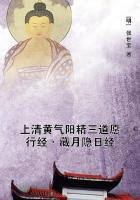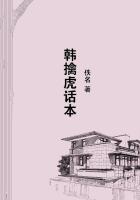It would seem from what has been said that he can do this better if he makes himself capable of legislating. For public control is plainly effected by laws, and good control by good laws; whether written or unwritten would seem to make no difference, nor whether they are laws providing for the education of individuals or of groups-any more than it does in the case of music or gymnastics and other such pursuits. For as in cities laws and prevailing types of character have force, so in households do the injunctions and the habits of the father, and these have even more because of the tie of blood and the benefits he confers; for the children start with a natural affection and disposition to obey. Further, private education has an advantage over public, as private medical treatment has; for while in general rest and abstinence from food are good for a man in a fever, for a particular man they may not be; and a boxer presumably does not prescribe the same style of fighting to all his pupils. It would seem, then, that the detail is worked out with more precision if the control is private; for each person is more likely to get what suits his case.
But the details can be best looked after, one by one, by a doctor or gymnastic instructor or any one else who has the general knowledge of what is good for every one or for people of a certain kind (for the sciences both are said to be, and are, concerned with what is universal); not but what some particular detail may perhaps be well looked after by an unscientific person, if he has studied accurately in the light of experience what happens in each case, just as some people seem to be their own best doctors, though they could give no help to any one else. None the less, it will perhaps be agreed that if a man does wish to become master of an art or science he must go to the universal, and come to know it as well as possible; for, as we have said, it is with this that the sciences are concerned.
And surely he who wants to make men, whether many or few, better by his care must try to become capable of legislating, if it is through laws that we can become good. For to get any one whatever-any one who is put before us-into the right condition is not for the first chance comer; if any one can do it, it is the man who knows, just as in medicine and all other matters which give scope for care and prudence.
Must we not, then, next examine whence or how one can learn how to legislate? Is it, as in all other cases, from statesmen? Certainly it was thought to be a part of statesmanship. Or is a difference apparent between statesmanship and the other sciences and arts? In the others the same people are found offering to teach the arts and practising them, e.g. doctors or painters; but while the sophists profess to teach politics, it is practised not by any of them but by the politicians, who would seem to do so by dint of a certain skill and experience rather than of thought; for they are not found either writing or speaking about such matters (though it were a nobler occupation perhaps than composing speeches for the law-courts and the assembly), nor again are they found to have made statesmen of their own sons or any other of their friends. But it was to be expected that they should if they could; for there is nothing better than such a skill that they could have left to their cities, or could prefer to have for themselves, or, therefore, for those dearest to them. Still, experience seems to contribute not a little;else they could not have become politicians by familiarity with politics; and so it seems that those who aim at knowing about the art of politics need experience as well.
But those of the sophists who profess the art seem to be very far from teaching it. For, to put the matter generally, they do not even know what kind of thing it is nor what kinds of things it is about;otherwise they would not have classed it as identical with rhetoric or even inferior to it, nor have thought it easy to legislate by collecting the laws that are thought well of; they say it is possible to select the best laws, as though even the selection did not demand intelligence and as though right judgement were not the greatest thing, as in matters of music. For while people experienced in any department judge rightly the works produced in it, and understand by what means or how they are achieved, and what harmonizes with what, the inexperienced must be content if they do not fail to see whether the work has been well or ill made-as in the case of painting. Now laws are as it were the' works' of the political art;how then can one learn from them to be a legislator, or judge which are best? Even medical men do not seem to be made by a study of text-books. Yet people try, at any rate, to state not only the treatments, but also how particular classes of people can be cured and should be treated-distinguishing the various habits of body; but while this seems useful to experienced people, to the inexperienced it is valueless. Surely, then, while collections of laws, and of constitutions also, may be serviceable to those who can study them and judge what is good or bad and what enactments suit what circumstances, those who go through such collections without a practised faculty will not have right judgement (unless it be as a spontaneous gift of nature), though they may perhaps become more intelligent in such matters.
Now our predecessors have left the subject of legislation to us unexamined; it is perhaps best, therefore, that we should ourselves study it, and in general study the question of the constitution, in order to complete to the best of our ability our philosophy of human nature. First, then, if anything has been said well in detail by earlier thinkers, let us try to review it; then in the light of the constitutions we have collected let us study what sorts of influence preserve and destroy states, and what sorts preserve or destroy the particular kinds of constitution, and to what causes it is due that some are well and others ill administered. When these have been studied we shall perhaps be more likely to see with a comprehensive view, which constitution is best, and how each must be ordered, and what laws and customs it must use, if it is to be at its best. Let us make a beginning of our discussion.
THE END

